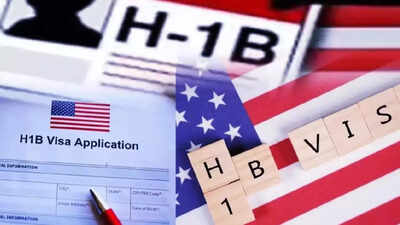ARTICLE AD BOX

The US Citizenship and Immigration Services (USICS) has started issuing Requests for Evidence (RFEs) demanding payment of the newly imposed $1,00,000 H-1B visa fee. These RFEs issued by USICS has triggered confusion and concerns among the immigration attorneys and employers.
This move made by USICS follows the presidential proclamation made in September this year. For those unaware, US President Donald Trump passed a new order in September 2025 while led to massive increase in the H-1B visa fee. As per the new order, the fresh H-1B visa applications will now be charged a fee of $100,000. Now a report by Economic Times suggests that the increase in the number of RFEs is creating confusion as these requests are appearing in cases where the fee requirement is not applicable.
For the uninitiated, RFE is a formal notice issued by the U.S. Citizenship and Immigration Services (USCIS) when an immigration officer determines that a petition or application lacks sufficient documentation to make a decision.
RFEs rise amid unclear guidelines
According to a report by Economic Times, the immigrations experts reported a noticeable uptick in RFEs even in cases where the fee may not apply. Gnanamookan Senthurjothi, founder of The Visa Code told ET that RFEs are being issued for H-1B recapture time cases, which typically involve reclaiming unused time from the six-year visa limit.
This has raised alarms about misinterpretation of the proclamation’s scope.On the other hand, Adam Rosen, managing attorney at Murthy Law Firm informed ET about a critical flaw in the language of the proclamation. Rosen highlighted that proclamation uses “visa” and “status” interchangeably, despite their distinct legal meanings. Along with this, Rosen also questioned the legality of imposing the fee on petitioners rather than beneficiaries, suggesting this could be challenged under Section 212(f) of the Immigration and Nationality Act.
Legal challenges and employer confusion
As per the ET report, many lawsuits have already been filed including by the U.S. Chamber of Commerce and H-1B advocacy groups, challenging the fee’s legality. Attorneys are now advising a two-step approach which includes responding to RFE with USCIS’s own guidance to argue exemption and if denied then pursue further federal litigation.Xiao Wang, CEO of Boundless Immigration, said that this confusion started from petitions filed before USCIS issued formal guidance on October 20, leaving employers uncertain about compliance.
He also cautioned against assuming the administration intends to broaden the fee’s applicability.
Strategic reassessment by employers
The report further adds that this financial and legal uncertainty is compelling the companies to rethink their H-1B sponsorship strategies. Kate Kalmykov, co-chair at Greenberg Traurig, said that going for litigation will be a last resort because of the cost and complexity involved. Instead of going for litigation, the company may now consider to pause the oversea hiring, relocate talent abroad, or invest in domestic upskilling to avoid the steep fee.Wang added that the H-1B program’s volatility is driving a shift toward self-reliance in immigration planning, with employers reserving sponsorships for critical roles only.
Impact on Indian applicants
As reported by ET, Indians account to 70% of all the H-1B visas and they are the ones who are affected the most by this development. The increase in the number of RFEs and legal ambiguity could delay processing times and increase costs for both applicants and sponsoring companies.

 1 hour ago
4
1 hour ago
4









 English (US) ·
English (US) ·